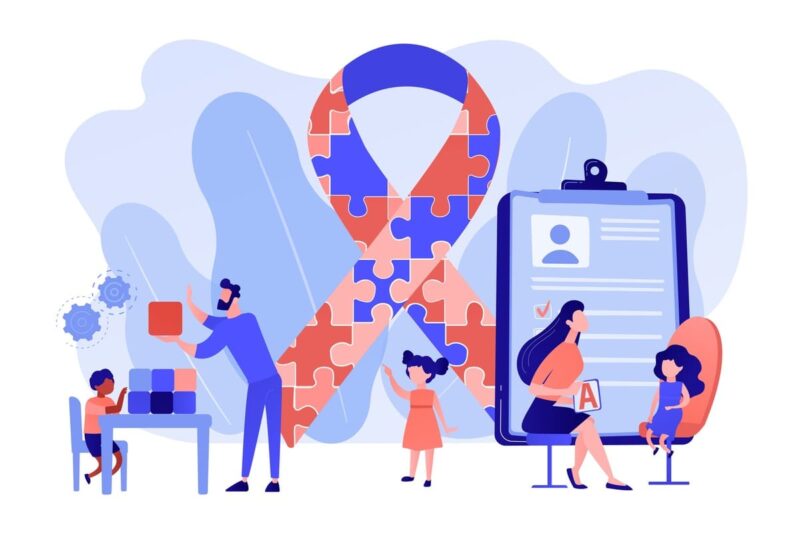What is Autism Spectrum Disorder?
Autism Spectrum Disorder (ASD) is a neurodevelopmental condition that affects communication, social interaction and behaviour. It is a spectrum because its manifestations vary significantly from person to person, depending on the severity of symptoms, age and level of intellectual and linguistic development.
Levels of severity of ASD
Currently, ASD is classified into three levels according to the need for support:
- Level 1: Requires support
The person has difficulties in social communication, finds it difficult to initiate or maintain conversations and may appear socially awkward. They also exhibit repetitive or rigid behaviours and difficulty adapting to changes in routine. - Level 2: Requires substantial support
There is significant impairment in verbal and non-verbal communication. Social interactions are very limited, even with support. In addition, repetitive patterns of behaviour and inflexibility affect daily functioning. - Level 3: Requires very substantial support
The person shows severe impairment in communication and barely responds to social interactions. Cognitive inflexibility and distress in the face of change are extreme, severely impacting daily life.

Symptoms of ASD
Symptoms of ASD can present in different ways and with varying intensity.
Some of the most common include:
- Difficulty understanding and expressing emotions or intentions of others.
- Atypical use of language or absence of language.
- Restricted and intense interests in specific subjects.
- Need for rigid routines and resistance to change.
- Repetitive behaviours such as rocking, flapping or echolalia.
- Hypersensitivity or hyposensitivity to sensory stimuli such as sounds, lights or textures.
Quality of life and challenges in ASD
The impact of ASD on a person’s life depends on the severity of symptoms and the support received. In childhood, it can affect school integration and social relationships, while in adulthood it can influence independence at work and daily life. Many people with ASD learn coping strategies to cope in society.
Treatment options
While ASD is a neurodevelopmental condition that accompanies a person throughout their life, appropriate treatment can significantly improve their quality of life and enhance their ability to function in everyday life.
Some of the most effective strategies include:
- Psychological therapy: Techniques such as cognitive behavioural therapy help improve emotional regulation and social skills.
- Social skills intervention: Programmes designed to improve interaction and communication in different contexts.
- Psychoeducation: Provides information and strategies to both the person with ASD and their environment, promoting understanding and appropriate support.
- Pharmacological support: In some cases, the use of medication may be helpful to treat associated symptoms such as anxiety, depression or hyperactivity.
- Occupational and sensory therapies: Help to manage sensory difficulties and improve autonomy in daily activities.
Benefits of therapy in ASD
Appropriate treatment enables people with ASD to:
- Develop communication and socialisation skills.
- Better manage anxiety and stress.
- Improve their independence and quality of life.
- Strengthen their emotional and mental well-being.
- Reduce barriers that may hinder their integration into school, work or social life.
Do you need help?
If you or a loved one has been diagnosed with ASD and are looking for guidance, I am here to help.
Together we can design a treatment plan tailored to their needs and strengths, promoting a full and functional life.
Contact me with no obligation here or book your appointment here.
